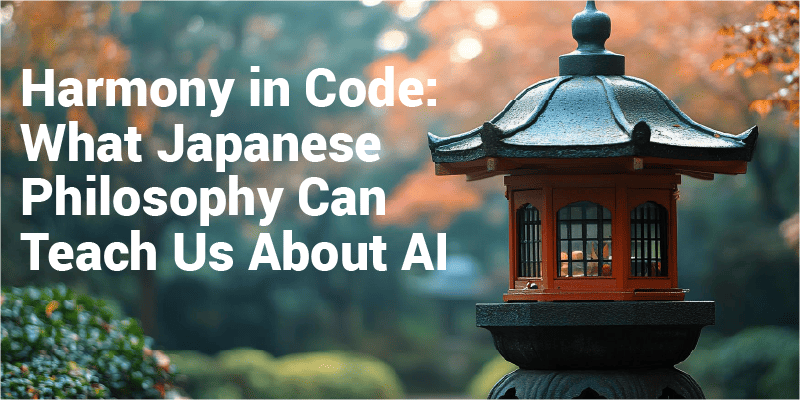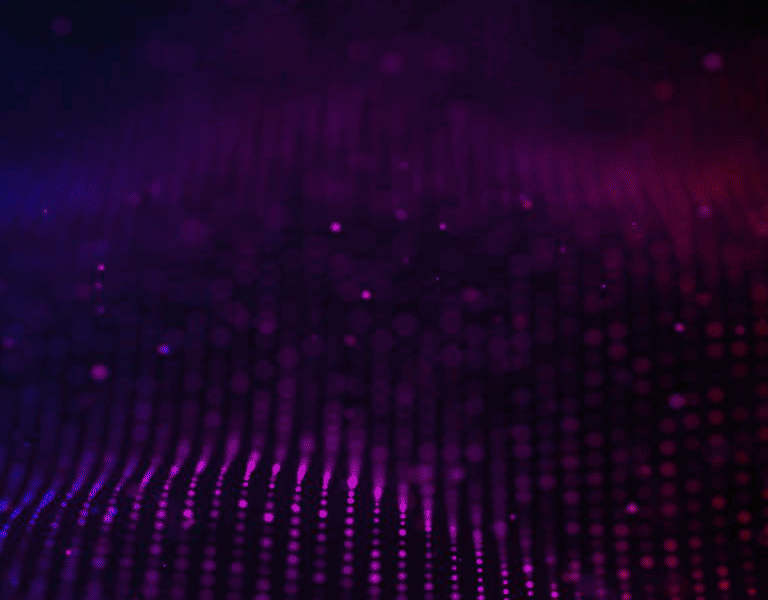Harmony in Code: What Japanese Philosophy Can Teach Us About AI

When we talk about Artificial Intelligence, the conversation often drifts toward algorithms, data pipelines, and futuristic robots. But sometimes, wisdom about the future doesn’t come from shiny machines—it comes from old traditions. Japan, with its rich tapestry of philosophies, aesthetics, and codes of living, offers a surprisingly human lens through which we can view AI.
Wabi-Sabi and the Beauty of Imperfect AI

Imagine a ceramic bowl with a crack running through it. Instead of discarding it, Japanese artisans fill the fracture with golden lacquer, turning the flaw into beauty. This practice, rooted in Wabi-Sabi, teaches that imperfection is not weakness but character.
AI, too, is full of cracks. Models misclassify images, chatbots misunderstand context, and biases slip into datasets. But just as a repaired bowl becomes stronger, every round of debugging, retraining, and feedback polishes AI. The flaws aren’t just mistakes; they’re lessons that make systems more robust. [i]
Kaizen and the Iterative Mindset

If Wabi-Sabi accepts imperfection, Kaizen offers the way forward: continuous, incremental improvement. Think of how your phone’s predictive text gets better over time, or how recommendation engines adapt to your tastes. These are small steps, quietly refining themselves in the background.
AI mirrors this philosophy perfectly. Training models isn’t about building a perfect machine at once; it’s about tuning layer after layer, epoch after epoch. Like craftsmen sharpening a blade day after day, data scientists sharpen their models in cycles of improvement, knowing perfection is never final. [ii]
Shoshin and the Beginner’s Curiosity

Zen Buddhism speaks of Shoshin—“the beginner’s mind.” It’s the idea that experts risk becoming rigid, while beginners remain open, curious, and eager. AI’s greatest leaps—deep learning, transformers, generative models—came not from clinging to tradition but from asking naïve yet daring questions.
Researchers who embraced Shoshin looked at language and asked: What if machines could not only analyze text but write it? That curiosity gave birth to today’s generative AI systems, capable of composing stories, music, and even scientific papers. In AI, every breakthrough begins with someone willing to see the field with fresh eyes. [iii]
Ma and the Space Between Human and Machine

In Japanese art, Ma is the pause that gives music rhythm, the silence that makes conversation meaningful, the space that allows architecture to breathe. Without Ma, everything would feel rushed and chaotic.
The same applies to AI. A chatbot that interrupts or overwhelms creates frustration. But one that listens, leaves room for your input, and responds thoughtfully feels almost human. Designing AI is not just about speed or accuracy—it’s about the spaces in between, where trust and comfort live.
Bushidō and the Code of Ethics

Finally, there is Bushidō, the samurai code of honor. Its values—integrity, responsibility, loyalty—are strikingly relevant to AI today. As machines influence hiring, policing, healthcare, and finance, the people building them must embody a code. Transparency, fairness, and accountability are not “nice to have”—they are a duty. Just as samurai lived with honor, AI practitioners must build with conscience.
Closing Reflections

Japanese philosophy shows us that AI is more than circuits and code. It is a mirror of human values. Wabi-Sabi reminds us to embrace flaws, Kaizen teaches us persistence, Shoshin sparks curiosity, Ma gives us balance, and Bushidō anchors us in ethics.
Perhaps the future of AI will not be defined only by computing power, but by how deeply we weave timeless wisdom into our machines. After all, the true harmony between humans and AI might lie not in technology itself—but in philosophy.
What Next?
Artificial Intelligence is not just a discipline—it is a movement reshaping the way we live, work, and innovate. As Japan’s philosophies remind us, the future of AI lies not only in technical mastery but in wisdom, balance, and purpose.
At REVA Academy for Corporate Excellence (RACE), REVA University, we believe in nurturing professionals who can merge deep technical knowledge with human values to create meaningful impact.
The journey ahead is both challenging and exciting. With the right mindset, the right community, and the right ecosystem, you have the power to influence industries, societies, and futures. AI is no longer tomorrow’s story—it is today’s opportunity.
So the real question is not whether AI will shape the future, but whether you will be among those shaping it.



